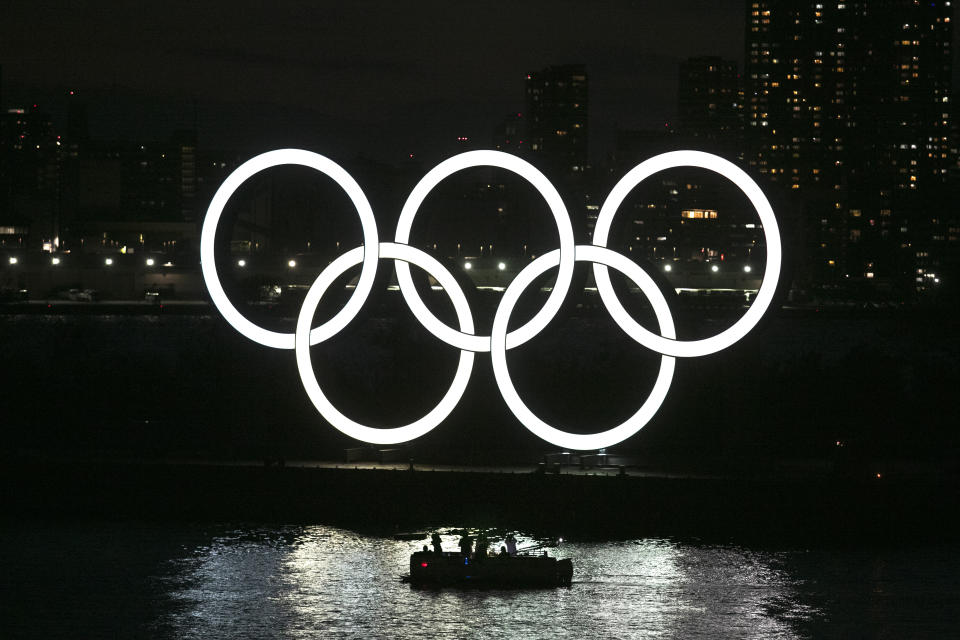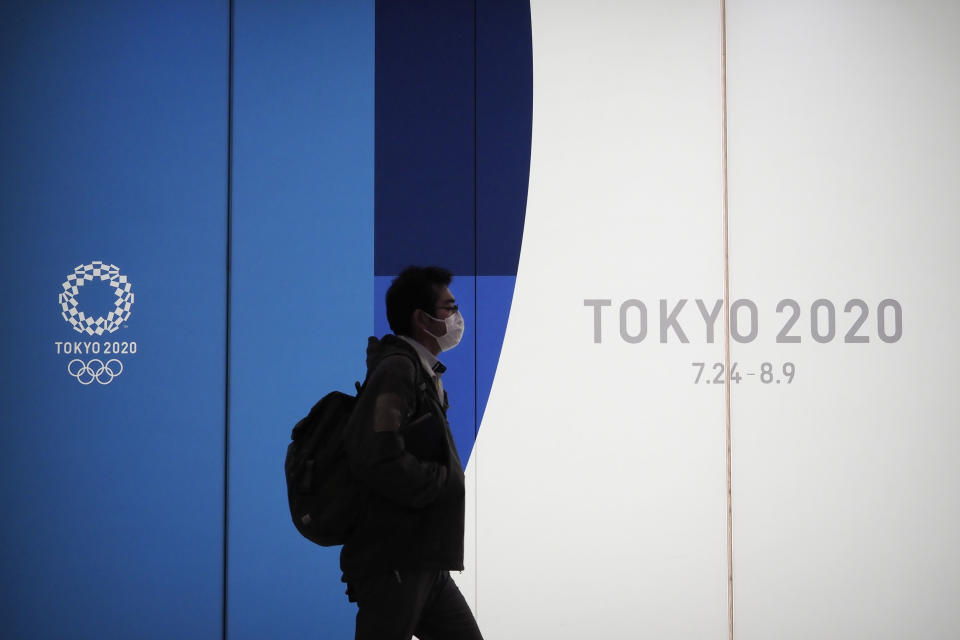2020 Olympics postponed due to coronavirus
The 2020 Olympics, which were scheduled to begin July 24 in Tokyo, have been postponed to a date “no later than summer 2021” due to the coronavirus pandemic.
The International Olympic Committee announced the decision Tuesday amid mounting pressure from athletes and various stakeholders.
“In the present circumstances and based on the information provided by the WHO today, the IOC President and the Prime Minister of Japan have concluded that the Games of the XXXII Olympiad in Tokyo must be rescheduled to a date beyond 2020 but not later than summer 2021, to safeguard the health of the athletes, everybody involved in the Olympic Games and the international community,” the IOC said in a statement.
This is the first time an Olympic Games has been postponed. Several have been canceled due to war (1916, 1940, 1944).
With the world struggling to contain COVID-19, the disease that has shut down many aspects of public life across the globe, it had become clear to experts that staging the Games this summer would be “utterly irresponsible.” Most major sports leagues in the United States and Europe have been suspended indefinitely for more than a week.
[Olympics postponed: Breaking down the logistical nightmare]
The IOC, despite the outbreak, had publicly and privately maintained confidence that the 2020 Games would be unaffected. On March 3, IOC spokesman Mark Adams told reporters: “We've made a decision. And the decision is that the Games go ahead.” On March 17, the IOC said it remained “fully committed” to holding the Games in 2020.
But its tone changed shortly thereafter as resistance grew. Athletes struggled to find places to train. Their qualifying events were disrupted. Some criticized the IOC for its lack of worry and care. Prominent individuals and sport federations began to call for postponement. On Sunday, hours after the IOC finally acknowledged the mere possibility of postponement, the Canadian Olympic Committee announced it would not send athletes to the Games if they were held as scheduled in 2020. On Monday, the United States Olympic and Paralympic Committee urged organizers to postpone.
Finally, the IOC made the call. The Games, it acknowledged, cannot go on this summer. And thousands of Olympic dreams are now on hold.
Postponement was IOC’s only option

From the moment the coronavirus first endangered the 2020 Olympics, officials past and present realized that postponement of any sort would present colossal challenges.
Dick Pound, the IOC’s most senior member, and the first to speak publicly about the possibility of cancellation, told the Associated Press in February: “You just don’t postpone something on the size and scale of the Olympics. There’s so many moving parts, so many countries and different seasons, and competitive seasons, and television seasons. You can’t just say, ‘We’ll do it in October.’ ”
October was unfeasible, in large part because NBC paid $1.1 billion for the right to broadcast the Games. In July and August, they fill a void on the sports calendar. In October, they’d clash with the NFL, college football and the MLB playoffs. The global soccer calendar creates a similar dynamic in Europe. If the IOC proposed such a postponement, sports economist Andrew Zimbalist told Yahoo Sports, “NBC and the other networks around the world are gonna say, ‘No, no, no, we don’t want you to do that.’ ”
Plus, it remains unclear whether the pandemic will have relented by October. “Safely holding a mass international sports event doesn't just depend on local or national conditions,” Lawrence Gostin, director of the World Health Organization’s center on global health law, explained to Yahoo Sports. “Even if a venue, like Tokyo, had a verifiable absence of cases, the Olympics could not be held because of mass travel from every region of the world. It's clear that as cases drop in Asia and peak in Europe and the U.S., they will also be on a steady rise in Africa and other regions. Thus, I can't foresee a time in the immediate future when it would be safe to hold an international sporting event.”
In fact, epidemiologists and global health experts are unsure whether it will be safe to hold the Tokyo Games in 2021.
With the IOC having ruled out cancellation, though, the only realistic option was postponement to 2021 or 2022 – which, longtime Olympics executive Michael Payne told Yahoo Sports, is “mind-bogglingly complex.”
“One-year postponement would bring enormous problems and costs,” Sidney Levy, CEO of the Rio 2016 organizing committee, told Yahoo Sports in February. “But it is feasible.”
Impact, challenges of holding 2020 Olympics in 2021
For weeks, organizers had been adamant that 2021 was not an option. “The IOC and the organizing committee are not considering cancellation or a postponement — absolutely not at all,” Seiko Hashimoto, Japan’s Olympic minister, said on March 13.
And there were reasons it had been considered implausible. There are nightmarish challenges associated with postponement behind the scenes. Venue use contracts will have to be renegotiated, tens of thousands of hotel reservations canceled and rebooked, and other 2021 events rescheduled to clear the way.
“A number of critical venues needed for the Games could potentially not be available anymore,” IOC president Thomas Bach wrote on Sunday.
There’s also the Olympic Village, which, after housing thousands of athletes, will be remodeled into condos and apartments. Units have already been sold to the public. Demand, as of late-2019, was soaring. Move-in timelines, presumably, were based on the Games occurring in 2020. Nobody can live there before the athletes do, so future residents will be on hold.
How will organizers sort through the many logistics?
“The Japanese will get ’round a table and work it out,” Payne, the longtime Olympics exec, said. “One by one.” They and the IOC will spend significant money in the process.
On the sporting side, there are many other hurdles to clear. Unfinished qualification cycles must be sorted through. Each sport will have its own issues to resolve. Some, including swimming and track and field, will have to reschedule world championships previously scheduled for the fall of 2021.
Logistical roadblocks, however, became navigable once cancellation became the only realistic alternative. It is, quite clearly, preferable for athletes, who have trained years for this quadrennial event.
So the Games will go on, eventually. But the coronavirus made holding them as scheduled unfeasible.




